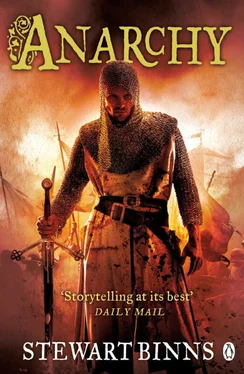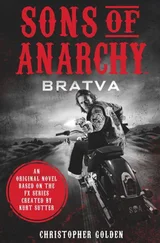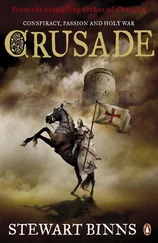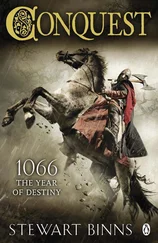Although I did not know his name, the knight’s rugged face was etched in my memory. I would meet him again – but not for almost three years.
Disenchanted with service for the King of the French, we left Paris a few days later and continued along the ancient route to the south via the fine cities of Dijon, Geneva and Montreux. The journey was uneventful – except for the marvels of the almost never-ending diversity of dukedoms, principalities, languages and customs.
We stayed longer than expected at Martigny, an important fortified town in the Alps, just to admire the remarkable scenery – both in terms of its mountainous vistas and its more venal attractions. All five of us found bounteous female companionship in the thriving Alpine burgh. It was a temporary home to many travellers from all parts of Europe, including scores of unattached young women on their way to famous nunneries in the dukedoms of Italy. For many families in northern Europe unable to provide a sufficient dowry for their daughters, a prestigious convent in Tuscany or the Papal States was an ideal home for a surplus daughter. They usually travelled in groups, nominally guarded by a small retinue of ageing warriors, and were often allowed far more liberty than they would have been accorded as individuals. To our delight, more than a few looked forward to an ascetic life of devotion and toil with some reluctance and were keen to partake of the pleasures of the flesh before such joys were forever denied them by the confines of the nunnery.
I learned several things about women in Martigny, the most lasting of which was the simple observation that, shorn of their badges of identity – their distinct languages, their forms of dress and their local mores – girls from all over Europe were no different from the girls I had known in Norwich. We were using them and they were using us; it was a shallow exchange, but not a transaction between equals. A life of adventure still awaited us, but for them it was an interlude that was unlikely ever to be repeated.
After a life under the strict control of their parents, they would soon enter a regime of devotion and servitude where temporal pleasures would be forbidden under pain of damnation. Like the young women of Norwich, most of whom could look forward to nothing more than an impoverished life of drudgery, the young girls we met had been given no choice in determining their future.
Although I felt sorry that their lot was not as propitious as mine, it did not of course prevent me from helping them enjoy their brief respite of freedom.
We would have tarried longer before traversing the Great Pass of St Bernard, down into Aosta, capital city of the lands of Amadeus III, Count of Savoy, but the snows of the winter of 1116 were almost upon us. I decided that we would make the crossing, then replenish our supplies in Aosta before seeing out the winter in Venice, from where we could board a ship to Constantinople in the spring.
Venice was a sight to behold: its palaces, churches and marketplaces seemed to float on the sea, most of its thoroughfares were waterways, and transport was undertaken by barge or small flat-bottomed paddleboat. The few areas of dry land that had not been built on formed small markets in front of churches, or narrow walkways between buildings. Despite its unusual architecture, Venice was a mighty power. It controlled the Adriatic and much of the Mediterranean beyond, and its income from commerce and trade made it as rich a city as any in the world.
Venice was not ruled by a sovereign but by the Doge, the military leader of the city, who was elected for life by its elders. When we arrived in January 1117, the Doge was a fascinating man called Ordelafo Faliero – a warrior of some repute who I decided was a man worth meeting. I set about trying to find a way of gaining an audience.
The key to Venice’s power was its Arsenale, a huge fortified shipyard dedicated to building its enormous navy. All the finest maritime craftsmen in the Mediterranean flocked to the Arsenale to perfect their skills. Although the five of us possessed not an iota of naval skill between us, the Arsenale seemed like the best place to make a name for ourselves. Language was also a problem. Venetians spoke Veneto, a tongue hard to fathom, while educated men used Greek rather than Latin in sophisticated circles, so communication was difficult. All the same, I was determined to meet the esteemed Doge and learn as much as I could from the enterprising Venetians.
We found lodgings close to the Arsenale and it took me a couple of days to devise a plan. I put it to my companions over a flask of the dark red wine favoured by the locals.
‘Gentlemen, we are going to present ourselves as aspiring marines for the Doge’s navy.’
I had recently decided to drop formalities within our close-knit band of brothers and allowed them to call me by my Christian name, which soon became abbreviated to ‘Hal’.
Eadmer made the obvious point in response to my bold suggestion.
‘Hal, you are not yet a dubbed knight and not yet nineteen. How will we get accepted?’
‘Leave that to me. We English have a good reputation as warriors, Wulfric and Toste are excellent shots with the bow, and my sword arm is strong. Eadmer, you are a very experienced soldier, I will rely on you a lot.’
‘I can fight too.’
As always, Alric was keen to fight rather than be a cook and groom.
‘Of course you can.’ I looked at the four of them. I knew they were not convinced. ‘I’ve decided that I will win my knight’s pennon here, rather than with the Normans. I want to be made a Knight of Venice and be dubbed by the Doge. I’m impressed by what I hear of him; I think he would be a good man to serve.’
Eadmer’s unease was escalating.
‘But we have no experience at sea. And besides that, I get seasick – and so does Toste.’
‘You’ll get over it.’
Eadmer was beginning to lose his self-control.
‘Look, Hal, you could get us all killed. I made a promise to your mother to keep you safe. The plan was to go to one of the Latin Princes in the Holy Land, where you could continue your training as a knight. Not to join an army, and certainly not one that fights on water!’
I decided it was time for me to assert my authority. This was something I had rarely done with my amiable companions before.
‘Firstly, my mother is not here, you are in service to me. Secondly, I’ve made my decision. And I expect you to respect it.’
I looked Eadmer in the eye. I tried not to blink or waver in any way; he had to know that I meant what I said. With that, I walked away, leaving my companions to ponder my words. I had only made three steps when Eadmer called after me.
‘Hal, you are right, we are in your service and paid to do as we’re bid. But don’t get us killed.’
I hesitated for barely a moment, but decided not to answer and walked on. I had made a big decision, based on my instinct that, despite the fact that almost everything about Venice was alien to me, the city and its Doge would be part of my destiny. The question was: did I have the stomach to meet that destiny?
The man I needed to convince about our credentials was Raphael of Pesaro, Master of the Arsenale of Venice. A large man with a neatly trimmed black beard, flecked with grey, he was responsible for the daily running of the Arsenale, as well as the recruitment of men to guard Venice’s trading vessels. I left my companions in our lodgings, cleaned up my weapons and clothes, trimmed my somewhat youthful beard and made my way to the Arsenale, the most powerful military establishment in the Mediterranean.
I felt I looked the part. I was fortunate that I could afford quality weapons: my knight’s sword and battle-axe gleamed in the sunlight, and both were tooled with the elaborate designs of a man of substance. Battle-axes, the main weapon of my English kith and kin, had been abandoned since the Conquest, the Normans believing the sword a more chivalrous weapon for a knight. Nevertheless, I carried mine with pride, in tribute to my grandfather’s legendary weapon, the Great Axe of Göteborg. Mine was a single-bladed one-handed axe, not the double-headed mammoth that Hereward had wielded. I also carried my family colours on my shield: the gules, sable and gold of my grandfather and the English revolt of 1069.
Читать дальше












